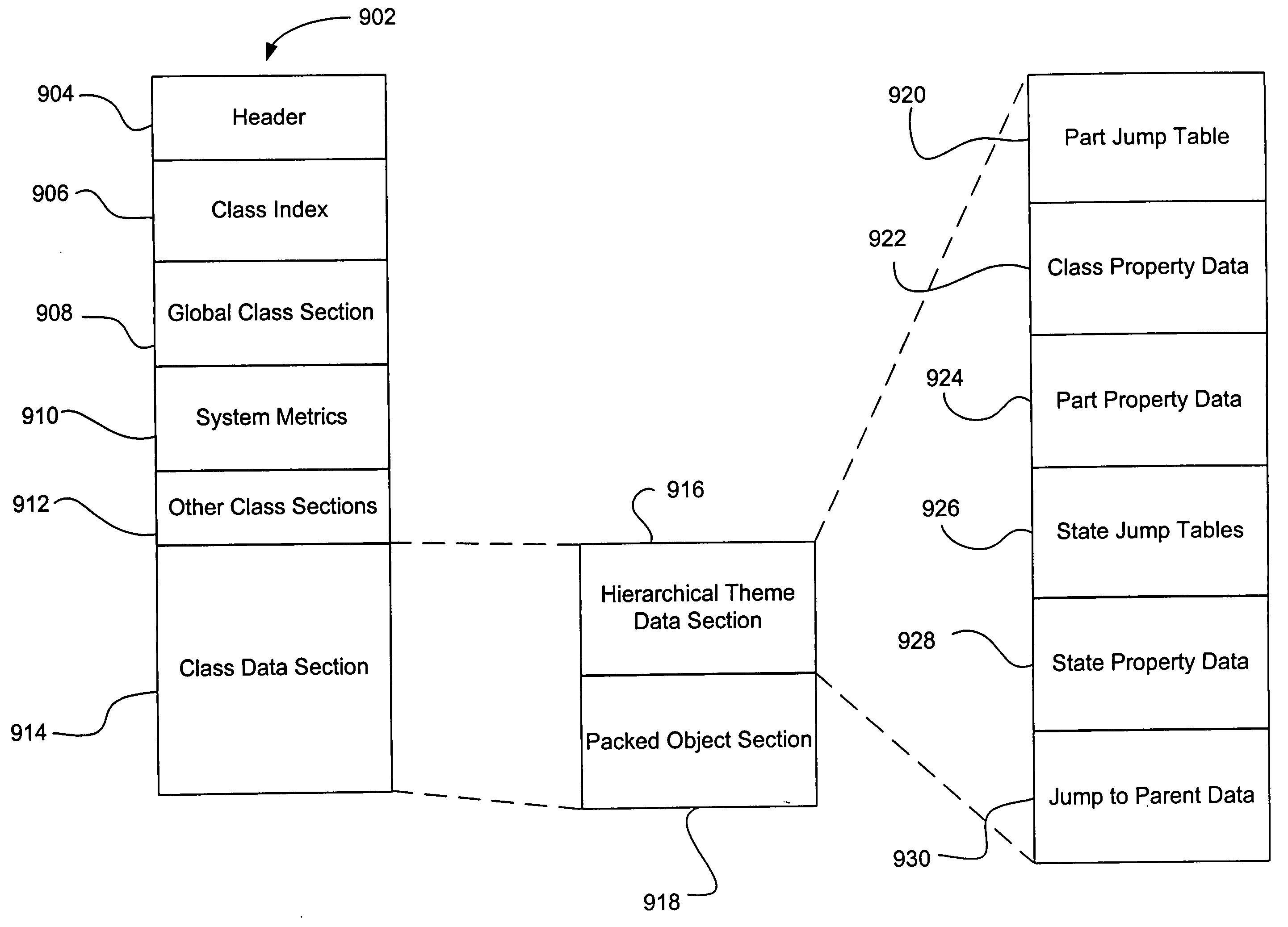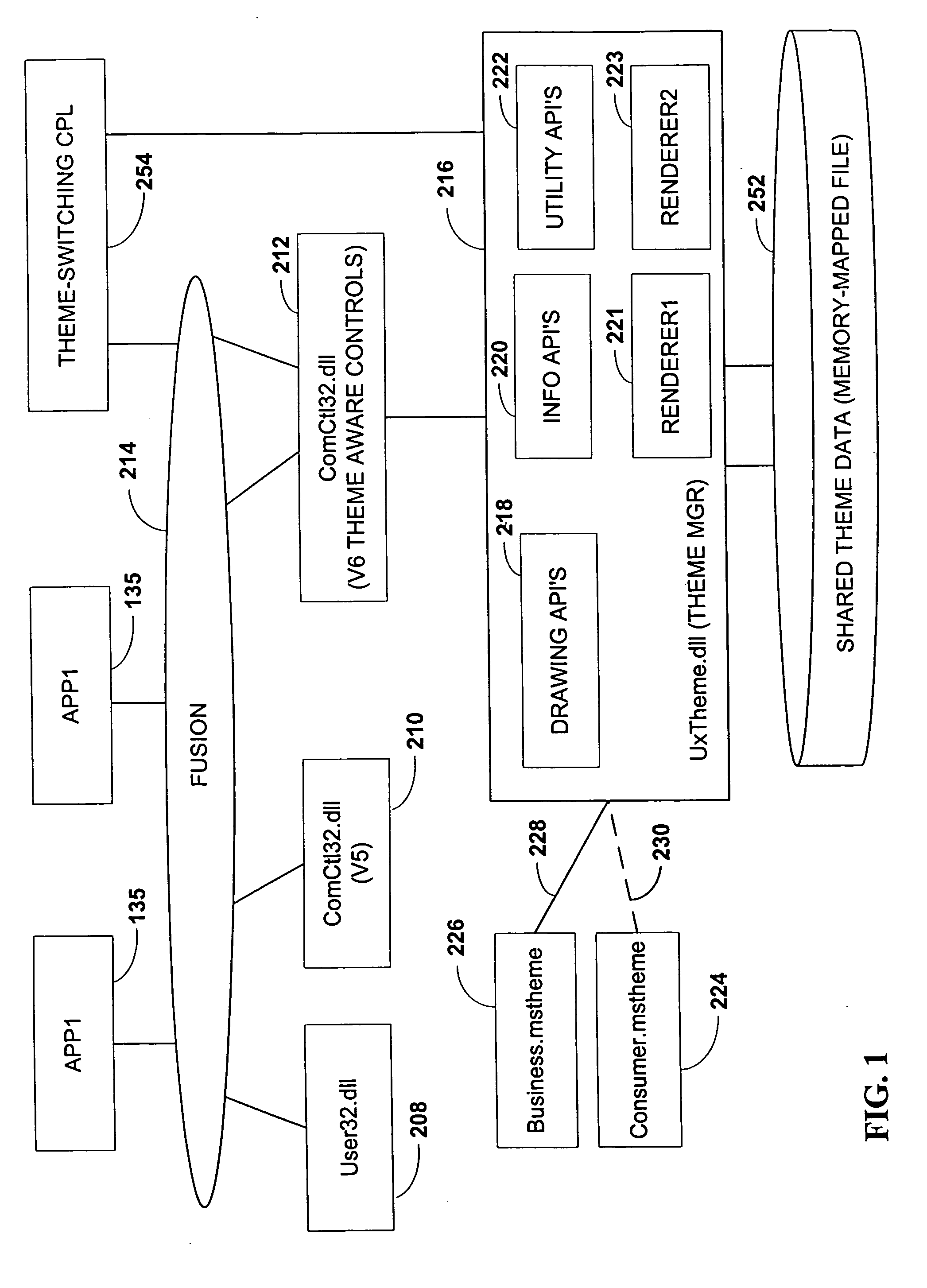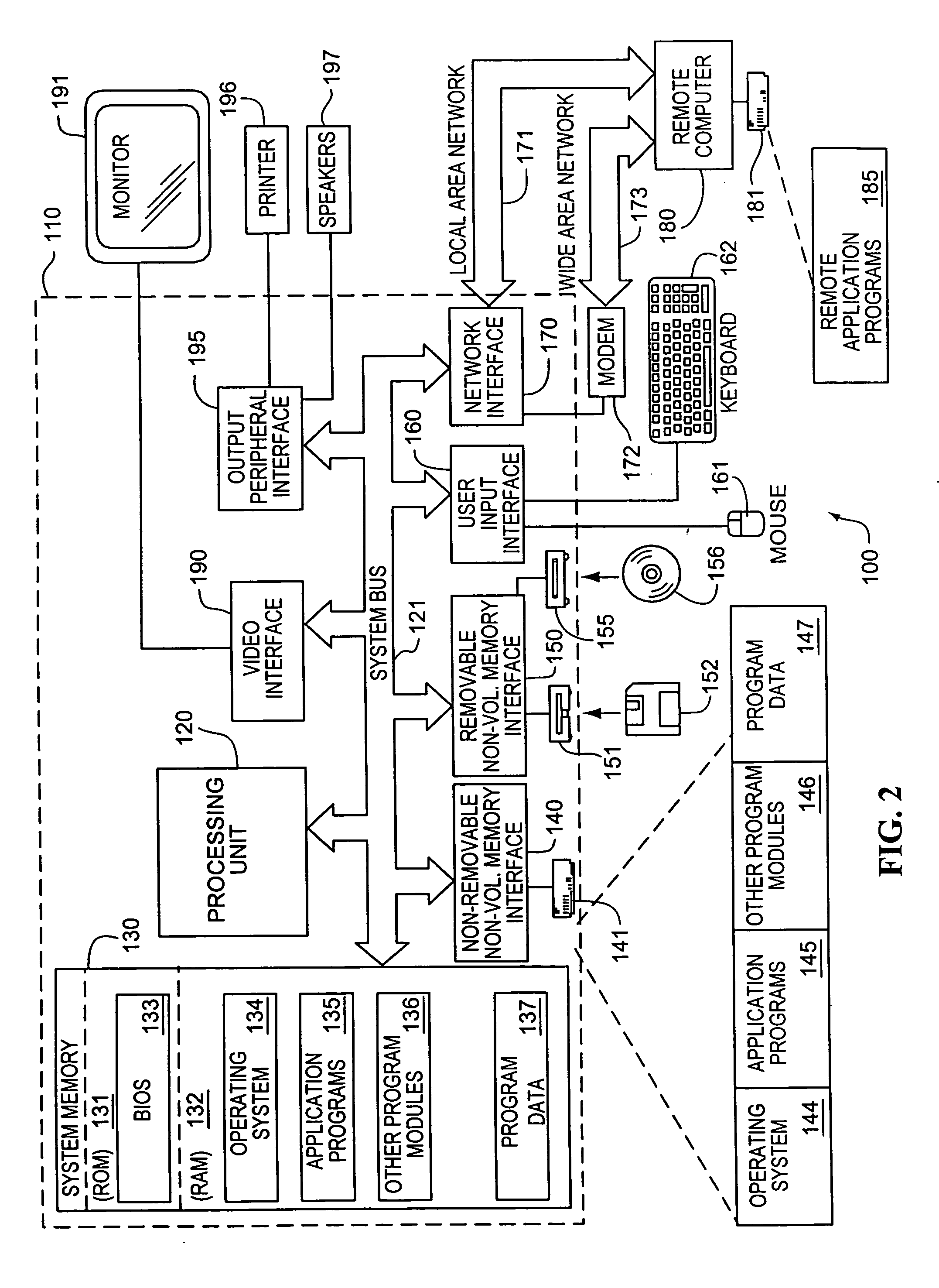Binary cache file format for themeing the visual appearance of a computer system
a computer system and cache file technology, applied in the field of computer systems, can solve the problems of time-consuming and limited process, difficult and cumbersome to easily alter the appearance of the controls and graphical components, and difficult and cumbersome to change the appearance of all the controls and components, so as to achieve fast and efficient access
- Summary
- Abstract
- Description
- Claims
- Application Information
AI Technical Summary
Benefits of technology
Problems solved by technology
Method used
Image
Examples
Embodiment Construction
[0036] The present invention provides a system, method and file format that facilitates creating and changing the visual style of displayed graphical components, such as controls, within a graphical operating environment. In one embodiment of the present invention illustrated in FIG. 1, operating system 134 is a graphical operating system having graphically displayed controls and components associated therewith. Controls include, but are not limited to, such things as scroll bars, push buttons and sliders. Other controls are within the scope of this invention, and are known to those of skill in the arL Other graphically displayed components are also within the scope of this invention. These components include, but are in no way limited to, non-client sections of the windows in the display, such as the frame surrounding an application display on the user interface, the minimize box, and the close box.
[0037] In FIG. 1, the basic architecture used in this embodiment of the present inv...
PUM
| Property | Measurement | Unit |
|---|---|---|
| color | aaaaa | aaaaa |
| sizes | aaaaa | aaaaa |
| shape | aaaaa | aaaaa |
Abstract
Description
Claims
Application Information
 Login to View More
Login to View More - R&D
- Intellectual Property
- Life Sciences
- Materials
- Tech Scout
- Unparalleled Data Quality
- Higher Quality Content
- 60% Fewer Hallucinations
Browse by: Latest US Patents, China's latest patents, Technical Efficacy Thesaurus, Application Domain, Technology Topic, Popular Technical Reports.
© 2025 PatSnap. All rights reserved.Legal|Privacy policy|Modern Slavery Act Transparency Statement|Sitemap|About US| Contact US: help@patsnap.com



